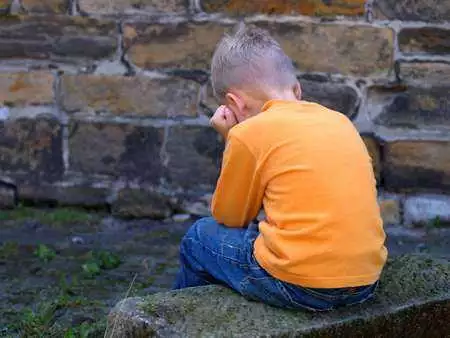In most children with chronic abdominal pain, no serious organic disease is found. In such situations, the child's stress and emotional problems are considered the main cause of abdominal pain. This article, written by an experienced psychologist, a specialist in clinical psychology, explains what are the mechanisms causing the development of chronic abdominal pain on emotional grounds. The importance of psychological intervention in children with chronic abdominal pain is highlighted.
In the case of unsatisfactory relations with the environment, low resistance to stress, poor ability to influence the environment and use feedback, the mental and physical regulation system begins to fail generating painful complaints. In the case in question, these are abdominal pains, but could just as well be other symptoms, e.g. hair loss, shortness of breath, hives, headaches, food allergies, inability to walk, speak, constipation, diarrhoea, fainting, vomiting, coughing and many others. Symptoms of serious somatic complaints as a manifestation of emotional, psychological ailments, directly related to deprivation of needs, values, i.e. not being able to function at an optimal level of mental and physical regulation.
The process of determining the cause of pain complaints aims to identify the specific reasons, issues, problems that cause these pains. Once the cause is established, the situation is analysed together with the patient and his/her parents and possibilities are found to interrupt and alleviate the pain by making systematic changes in the patient's life situation. It is remembered that the patient functions within the family system and only a change made throughout the system can bring about the expected improvement. To help the child, the help of close family members is needed. The child's problem is a problem of the whole family.
This in turn functions like a chain, the individual links are connected to each other. If one link breaks, the chain breaks and needs to be repaired. It is the same with the family: in order for it to function efficiently, all its links must be strong and not susceptible to tearing.
We bear in mind that every person has problems to live with, to deal with, to accept at every stage of their life. An adult has a different type of problem, an adolescent a different one and a young child a different one. Sometimes it is difficult for an adult parent to understand that their child has a problem. It is not uncommon for a parent to be surprised because they think that if their child has clothes, toys, food, pocket money, then they actually have everything and should be happy, smiling and fit into the family lifestyle.

photo: pantherstock
It is not uncommon for an adult to be convinced that a child should fit in. There is a lot of rightness in this. However, if our child has emotional, psychological pains, then if we are modern people, we should look at the issue more broadly, going beyond our own self-centredness. Let's look with a critical eye at our own behaviour and then think about what is happening in the nursery, kindergarten, school. The younger the child, the quicker he or she reacts to irregularities in the environment, emotional falsehoods, revealing behaviour that should worry us. I guarantee that if the parents improve the emotional relationship between each other as well as between the child and themselves, their child will immediately register this and signal e.g. stop wetting the bed, suffer from stomach pains, vomit, have constipation or diarrhoea.
To this day, I can't forget the little girl who lost her beautiful hair braided in a golden braid within three weeks of learning of her parents' divorce. The behaviour of adults in most cases has a direct impact on the emotional pain of their child. Let us therefore try to maintain an emotionally positive relationship with our spouse, show kindness to each other on a daily basis, so that our child feels safe at home. Talk to your child about everything, so that he or she knows that you are interested in him or her, that his or her concerns are close to your heart. Let's not leave him or her alone at home, unattended by another adult, let's take him or her on walks, outings, to the theatre, cinema, holidays, holidays and days off.
During the working week there is usually little time to talk for longer and the child may feel pushed away. Therefore, let' s plan our free time together and spend it efficiently, following the principle of quantity over quality. Both father and mother should take care of the child, although not necessarily at the same time. For the proper mental, physical, social development of the child, proper emotional contact with each parent is essential. This is especially important to remember for those parents who are in the process of divorce.









